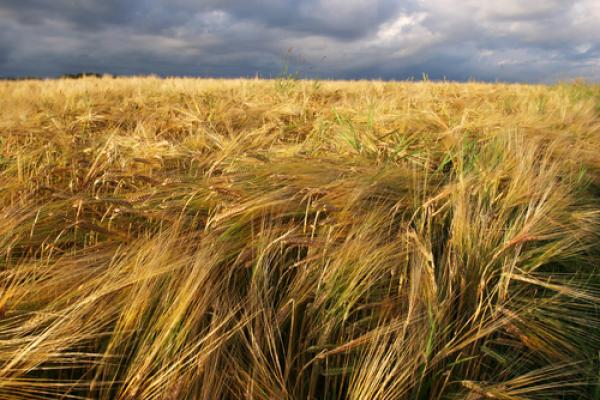They call it the field de calzon — the field of panties —because so many rapes happen there.
On Wednesday, the organization Human Rights Watch released the report Cultivating Fear: The Vulnerability of Immigrant Farmworkers in the US to Sexual Violence and Sexual Harassment. It’s filled with tales that would make Jeremiah, or Amos, or Micah weep: stories of some of the most marginalized, exploited, and impoverished people in the country.
HRW talked to 160 farmworkers, growers, law enforcement officials, attorneys and other experts in agricultural workplace issues in 8 different states, finding that most women working in agriculture have been — or know someone who has been — victimized sexually at work; confirming the findings of a 2010 survey of California Central Valley workers in which 80 percent reported having experienced sexual harassment or abuse on the job.
It’s common enough that some women farm workers see it as “an unavoidable condition of agricultural work.”
In the US generally, sexual abuse, sexual harassment, and rape are underreported, but the groups that make up farmworkers are even less likely to report. For one thing, nearly 70 percent of agricultural workers are Mexican born; Latinas in the US are estimated to report fewer than 7 percent of the incidents of sexual harassment they experience.
“For a woman alone, there is much danger,” said one female farm worker, “A man can catch you in the field where the plants are taller than you.”
Because an estimated 50 percent of farmworkers are unauthorized workers (a number that’s held steady for more than a decade), they are particularly vulnerable, with just 30 percent of them speaking English well. It is estimated that 20 percent of agricultural workers are not fluent either in English or Spanish — because they speak indigenous languages — and are especially at risk of being mistreated.
Under the International Covenant on Civil and Political Rights (ICCPR) and Title VII of the Civil Rights Act of 1964, every worker — regardless of immigration status — has the right to protection from sexual harassment at work. Still, with the increased involvement of local police in federal immigration enforcement — which is happening in Arizona, Alabama, South Carolina, Georgia, and Utah — many workers are afraid to report on abuse. Outside California, agricultural workers are excluded from certain other federal protections — they have no collective bargaining rights, for example, and OSHA protection loopholes mean that fully one-third of farm workers have no legal protections guaranteeing their rights to minimum health and safety standards.
Even where workers are aware of their (sometimes meagre) rights, they are terrified to come forward. These are people who work on piece rate or hourly wages, who receive no unemployment benefits, no sick pay, and for whom the loss of a job equals the loss of their housing. Many, many growers use labor contractors to “external[ize] the risk of being an employer, and to distance themselves from the mistreatment of workers that happens all to often under the small, unlicensed contractors that oversee a significant portion of workers.
Supervisors, in some cases, view sex as a job perk and use it as a bargaining point. One woman was fired after she missed work to take her son — who’d been hit by a car — to the hospital; her supervisor agreed to give her job back only if she would have sex with him.
Another was raped upon her hire, and raped continually until she became pregnant; she, like many other survivors, suffers physical and emotional trauma, as well as disruption in her family life. In some cases, husbands become angry with wives who’ve been raped or sexually abused at work. And even when women face down their fear of termination or ostracism to come forward, there have very, very limited access to social services that could help them, counselors who speak Spanish being literally too few and too far from where agricultural workers live.
It’s popular these days to talk about food and justice in terms of local foods and fair trade and animal welfare. But how much of the food on our plates is coming to us from hands that have wiped away many tears over vile (and violent) abuse?
Sandy Brown of the Swanton Berry Farm in California says this: “When people ask about food justice, I tell them, ‘you have to go contact your Congress[person] about immigration.’”
And, I’d add, about meatier laws protecting women from violence--like the Senate version of the Violence Against Women Act (VAWA).
The people who feed the US deserve better than this. And God asks it of us on their behalf.
Download and read the HRW report HERE.
Rachel Stone is a writer living in Greenport, New York. She has contributed to Relevant, Books and Culture, Christianity Today, and Flourish, and blogs at RachelMarieStone.com. Her book, Eat with Joy: Redeeming God’s Gift of Food, is forthcoming from IVP in February.
Image: eurospiders/shutterstock
Got something to say about what you're reading? We value your feedback!
